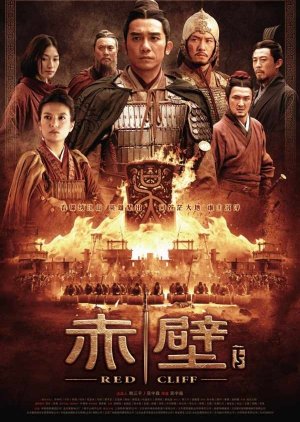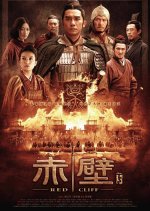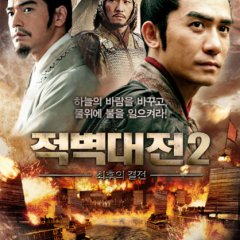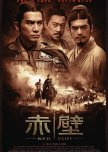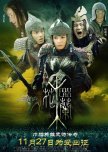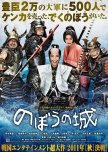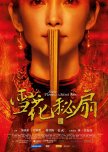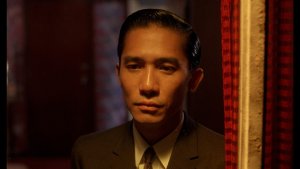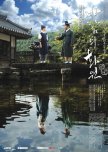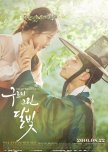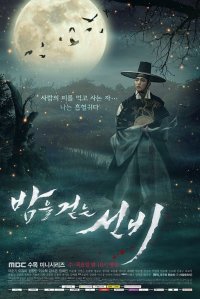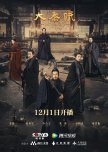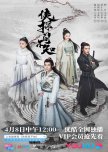 Ask MDL And Now For Something Different: Historical (September)
Ask MDL And Now For Something Different: Historical (September) Bitter over an unforeseen defeat to rival states Shu and Wu, Cao Cao of the Wei Kingdom is confident that his million-man fleet will crush the under-manned alliance once and for all. An epidemic and seasickness cripple Cao Cao's men, however, postponing D-day. Gen. Zhou Yu and strategist Zhu Ge Liang take the time to demoralize their enemy and trick Cao Cao into practically giving them 100,000 arrows and even beheading his top generals. Nevertheless, the allies are still seriously outnumbered and can only increase their chances of winning by attacking with fire. A northwester, however, compromises their plan, as the flames would blowback in their direction. Zhu Ge Liang, foreseeing an astronomical movement that will change the circumstances, urges the allies to postpone the attack. Meanwhile, Xiao Qiao, Zhou Yu's beautiful wife whom Cao Cao lusts after, heads to the enemy line with a plan of her own. Edit Translation
- English
- Español
- magyar / magyar nyelv
- dansk
- Native Title: 赤壁(下)
- Also Known As: Red Cliff: The Decisive Battle , Chi bi: Xia - Jue zhan tian xia
- Screenwriter & Director: John Woo
- Genres: Action, Historical, Drama, War
Cast & Credits
- Tony LeungZhou YuMain Role
- Kaneshiro TakeshiZhu Ge LiangMain Role
- Zhang Feng YiCao CaoMain Role
- Nakamura Shido IIGan NingSupport Role
- Hu JunZhao YunSupport Role
- Lin Chi LingXiao QiaoSupport Role
Reviews

I will skip the history in this review, I wrote about it in the first part and any extra historical information that I give in this film would be considered a spoiler for those who aren’t familiar with history. But let me just make something clear, John Woo didn’t exactly follow history. He changed many events for the favor of his storytelling, so the outcome and some facts can be misleading for those who want to take this as an accurate “historical reference”.
Red Cliff 2 is all about war and everyone knows that everything is allowed in war; whether be it contaminating the enemy’s camp with deadly contagious diseases, using the enemy’s spies against them or burning down the Navy. That’s war, it’s ugly and everyone loses at the end, the deadly battles and the horrible truth are definitely there. However, that’s not all what war in John Woo’s film is all about. There’s more to tell through the splendid battle scenes.
The heart and soul of this film is the epic battle of the Red Cliff that marks one of the greatest wars in Asian history whether because of the number of soldiers involved or the smart distinguished generals who were leading armies. It’s 800,000 against 50,000; the first is led by the outrageous yet politically clever Cao Cao and the other is headed by the combination of Sun Quan and Liu Bei with the magnificent aid of the intelligent Zhuge Liang and Zhou Yu. The battle was all about tactics and strategists where the two advisors play an important role at confronting a huge army. The famous 36 Stratagems and 'Borrowing the arrows using the scarecrows' are one of the greatest psychological war techniques I ever read about in history and John Woo did an superb job by making them come to life.
The amazing strategies aren’t the only thing that clicked about this film; there’s also the astonishing portrayal of battles scenes, the blood spilling, the wonderfully made fire scenes and most of all the emotions and the reactions of characters’ involvements.
In this part, there’s no further explanation of actors; I already made everything clear about their amazing job in the first part. As for characters, I still insist on the over-use of the female characters, they weren’t only all over the place but they also were historically wrong.
The other characters’ developments were well-noticed between the first and the second part. We get to see more impressive sides of historical heroes especially Zhuge Liang and Zhou Yu.
This film’s cinematography was stunning. The visuals, colors and the sceneries were well-fitting for an remarkable piece of Chinese war epic.
Now, if I speak about the film as a whole; I would say it’s one of the best war strategy films ever made and absolutely one of John Woo’s better works. This is not a sequel; it’s a second half of the same film so you should understand that this is supposed to be watched as a whole. Do not see the American or the European cut versions; you should search for the original release of the two films or you won’t be able to feel the whole magic.
Watch this if:
-You saw the first Red Cliff because they’re inseparable.
-You like war films or John Woo’s HK works.
-You like strategy films.
Do not watch if:
-You’re expecting a historical documentary where everything is accurate.
-You do not like war films.
Red Cliff 2 is the second part of an amazing Chinese film that deals with the famous “Three Kingdoms” epic displaying the Red Cliff battle with all of its spectacular strategies and tactics.
Red Cliff as a whole is one of the better films’ that successfully demonstrated the art of war.

a must-watch for history enthusiasts
Red Cliff 2 is yet another cinematic triumph from the brilliant mind of director John Woo, complemented by the same stellar cast of 5-star actors and actresses from its predecessor. If you were captivated by Red Cliff 1, you'll find yourself irresistibly drawn to the continuation of this epic tale.Once again, the movie immerses us in the pages of real history, flawlessly maintaining the continuity of the story. It's a must-watch for history enthusiasts, as it provides a captivating and informative glimpse into ancient Chinese warfare.
The choreography and battle scenes are masterfully executed, delivering a breathtaking spectacle that keeps audiences at the edge of their seats. The film's cinematography is stunning, with visuals, colors, and sceneries that perfectly suit this remarkable piece of Chinese war epic.
Red Cliff 2 beautifully intertwines historical accuracy with an engaging plot, making it an enriching experience for viewers seeking both entertainment and knowledge. This grand cinematic achievement cements Red Cliff's position as an epic history lesson that is truly worth learning and watching.

